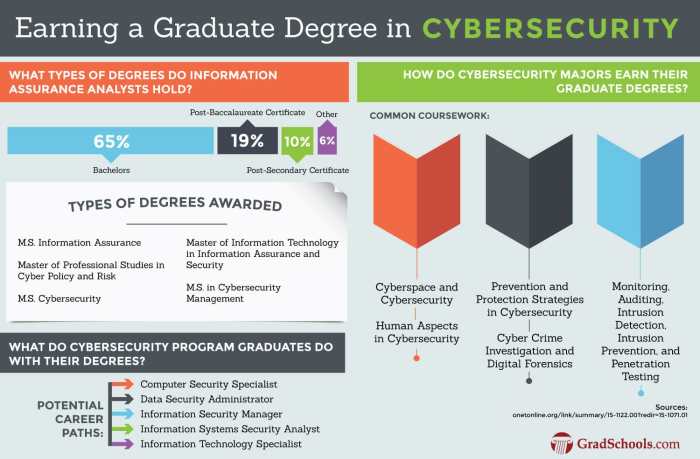Delve into the world of degrees in cybersecurity, a field that’s booming with opportunities and offers a promising future. With cyber threats becoming increasingly sophisticated, the demand for skilled cybersecurity professionals is skyrocketing.
From understanding the different types of cybersecurity degrees to exploring the lucrative career paths they open up, this guide will provide you with all the essential information you need to make an informed decision about your education and career in cybersecurity.
Overview of Cybersecurity Degrees

Cybersecurity degrees equip individuals with the knowledge and skills to protect computer systems, networks, and data from unauthorized access, use, disclosure, disruption, modification, or destruction. These programs cover a wide range of topics, including network security, cryptography, malware analysis, and ethical hacking.
Types of Cybersecurity Degrees
There are several types of cybersecurity degrees available, each with its own focus and career path.
- Associate’s Degree in Cybersecurity: This two-year degree provides a foundation in cybersecurity principles and prepares graduates for entry-level positions in the field.
- Bachelor’s Degree in Cybersecurity: This four-year degree provides a more comprehensive education in cybersecurity and prepares graduates for a wide range of careers in the field.
- Master’s Degree in Cybersecurity: This one- to two-year degree provides advanced knowledge and skills in cybersecurity and prepares graduates for leadership roles in the field.
Curriculum and Career Paths
The curriculum for cybersecurity degrees varies depending on the type of degree and the institution offering the program. However, most programs cover the following core topics:





